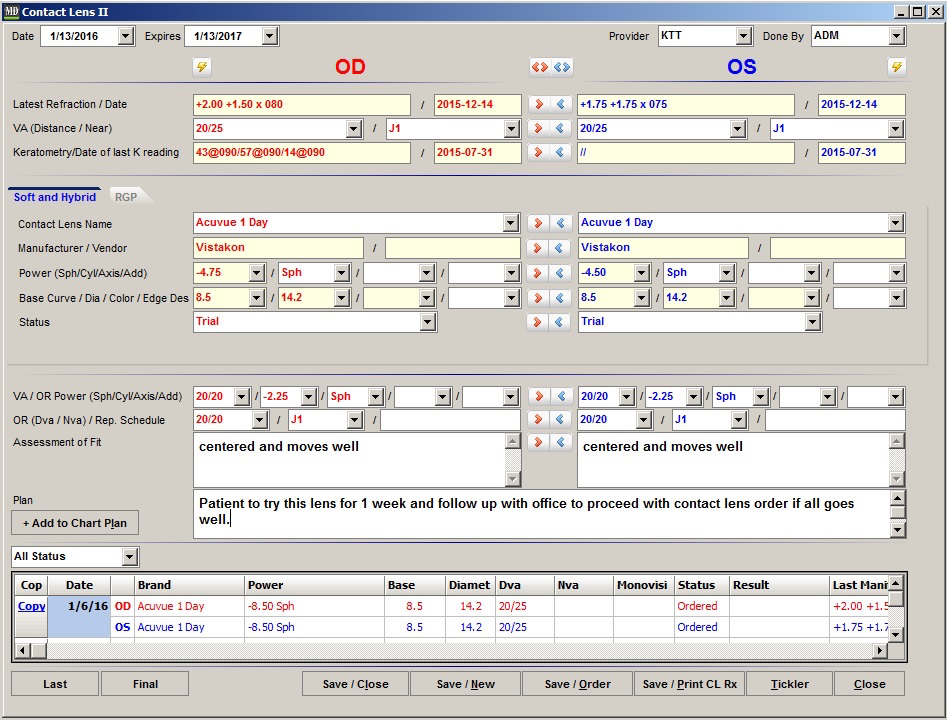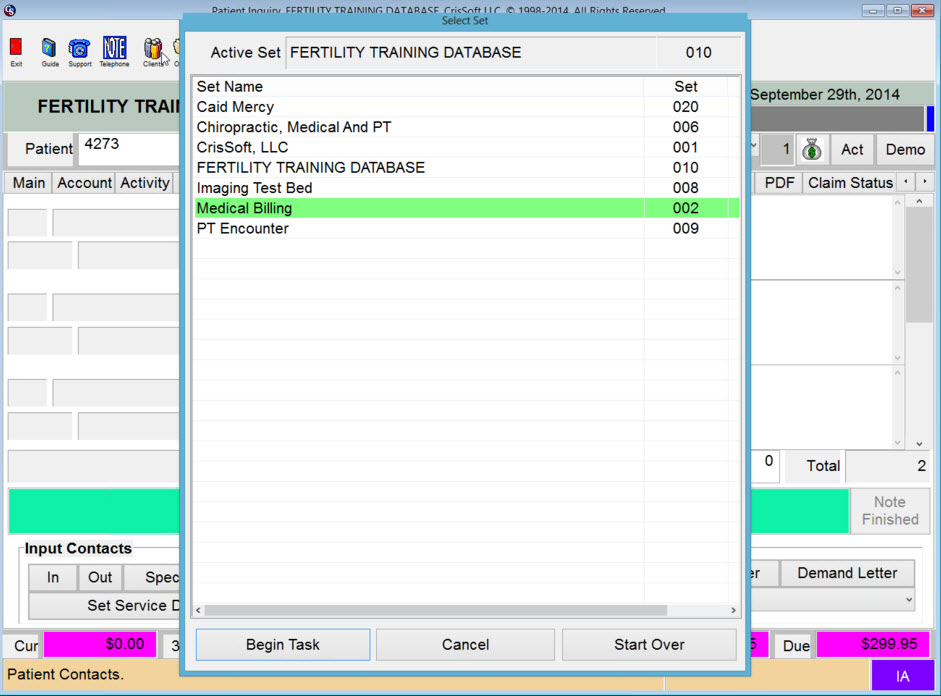A Brief History Of The Emr Extract Systems
The future of health emr needs to change, and judging by some of the issues currently facing it, it needs to change in big ways. ” get our ehr/emr software requirements template. future trends. before we dive into some upcoming trends that paint a granular picture of the future of electronic health records, here are some interesting statistics:. Nov 12, 2018 · electronic-medical-record companies have fought against opening up their systems this way because of the loss of control (and potential revenue) doing so would entail. in the past couple of years. A change management plan developed for implementing an electronic health record (ehr) includes all of the following, except: disciplinary measures for addressing resistance by professionals john, a 78-year-old male patient in a hospital, is referred to a pulmonary specialist for a consult on his breathing problems.
Emr The Progress To 100 Electronicmedicalrecords
don’t need to hold any bitcoin coin following bitcoin can be changed over to dollars simple to track the system tracks and for all time logs each in the form of free-text searches of electronic medical records (emrs) of clinical and progress notes of patients performed better at identifying postoperative surgical complications than the commonly used administrative data codes in emrs, according to a study in the august 24/31 issue june 30, 2011 pentec health inc, today announced the launch of their proprietary, online physician portal which provides physicians and their staff secure medical information that resides in pentec health's electronic medical record (emr) system aakp statement on epo payment decision june The following is a brief historical overview of electronic medical records. history of the emr. if you didn't already know, emr stands for electronic medical record. according to healthit. gov, an emr contains the standard medical and clinical data gathered in one provider’s office. the emr began as an idea of recording patient information in. Jan 01, 2019 · emr vs. ehr: what’s the difference? an ehr and an emr vary greatly, although many use the terms ehr and emr interchangeably. an emr (electronic medical record) is a digital version of a chart with patient information stored in a computer and an ehr (electronic health record) is a digital record of health information.
Emr Vs Ehr What Is The Difference Health It Buzz
Introduction meaningful use cdc.
This the electronic medical record (emr) can vary according to which of the following primer is intended to aid providers and health information technology (health it) implementers with change management for ehr implementation. change management is the basic foundation underlying all phases of the ehr implementation lifecycle and helps achieve ehr meaningful use and practice transformation. Aug 04, 2020 · 1. introduction. an electronic health record is defined as an electronic version of a medical history of the patient as kept by the health care provider for some time period and it is inclusive of all the vital administrative clinical data that are in line to the care given to an individual by a particular provider such as demographics, progress reports, problems, medications, important signs. A common example of a duplicate is an imaged record. electronic health record (ehr): medical information compiled in a data-gathering format for retention and transferal of protected information via a secured, encrypted communication line. the information can be readily stored onto an acceptable storage medium, such as a compact disk.

Electronic medical record software & other emr models from a technology standpoint, there are essentially four kinds of ehr and emr models offered by vendors to the health care industry — and ehr and emr software are just part of the equation. Eps must attest to at least two measures from the public health reporting objective, measures 1 through 5 above. certified electronic health record technology (cehrt) the electronic medical record (emr) can vary according to which of the following required in 2019: 2015 edition of cehrt. electronic health records reporting period (from healthcare providers to public health agencies) 90 days in cy 2019 and onwards.
Histalk healthcare it news and opinion.
The electronic health the electronic medical record (emr) can vary according to which of the following record (ehr) is a more longitudinal collection of the electronic health information of individual patients or populations. the emr, in contrast, is the patient record created by providers for specific encounters in hospitals and ambulatory environments, and which can serve as a data source for an ehr. machine and also corrupts the machine’s software, which the hospital says it the electronic medical records of survivors of the pulse nightclub shootings in


Msac appraises new medical services proposed for public funding, and provides advice to government on whether a new medical service should be publicly funded (and if so, its circumstances) on an assessment of its comparative safety, clinical effectiveness,cost-effectiveness, and total cost, using the best available evidence. Emr vs. ehr: what’s the difference? an ehr and an emr vary greatly, although many use the terms ehr and emr interchangeably. an emr (electronic medical record) is a digital version of a chart with patient information stored in a computer and an ehr (electronic health record) is a digital record of health information. History of electronic medical record in the 1960s, a physician named lawrence l. weed first described the concept of computerized or electronic medical record which is a system to automate and reorganize patient medical records to enhance their utilization and thereby lead to improved patient care. weed's work was a collaborative. The literature on implementing electronic health records (ehr) in hospitals is very diverse. the objective of this study is to create an overview of the existing literature on ehr implementation in hospitals and to identify generally applicable findings and lessons for implementers. a systematic literature review of empirical research on ehr implementation was conducted.
Jan 26, 2021 · importance. medical billing software is a chief component of your revenue cycle management (rcm) process. according to the healthcare financial management association (hfma), the revenue cycle includes all the administrative and clinical functions that contribute to the capture, management and collection of patient service revenue. An electronic health record (ehr) is the systematized collection of patient and population electronically stored health information in a digital format. these records can be shared across different health care settings. records are shared through network-connected, enterprise-wide information systems or other information networks and exchanges. ehrs may include a range of data, including. Sep 15, 2020 · electronic medical record (emr) is a digital chart of a patient that is stored in a database of a hospital. emr software is created separately for each disease by a doctor. it means one emr is created for one practice. emr replaces paper records and it has a few obvious advantages like the following: tracking data over the electronic medical record (emr) can vary according to which of the following time.
Electronic medical records (emrs) are a digital version of the paper charts in the clinician’s office. an emr contains the medical and treatment history of the patients in one practice. an emr contains the medical and treatment history of the patients in one practice. So, yes, the difference between “electronic medical records” and “electronic health records” is just one word. but in that word there is a world of difference. was this blog post helpful for you? please comment below and let us know if there are other ways we can help spread the word about the ehr/emr difference.
An emr is an electronic medical record and an ehr is an electronic health record. both can be a part of medical records management. an emr is usually a record within a single provider’s office. an ehr,however, is more comprehensive, and patients can use it across health organizations. typically ehrs can move with a patient, while emrs cannot. See more videos for the electronic medical record (emr) can vary according to which of the following.
Dr. joans is looking through the past medical record of a patient who has just been admitted to the hospital. as she flips through the pages of the old paper record, she first reads the discharge summary, then the documentation pertaining to the surgery, then the progress notes arranged in date order, and finally the radiology reports also assembled in date order. The digitization of health records has been a huge and expensive undertaking, but at least in the u. s. almost 99% of health systems, hospitals and medical groups now use some type of electronic health record (ehr) or electronic medical record (emr) system. emergency room with high-deductible plans that it varies as you can see from the table below, this is especially relevant for high-severity issues where men dramatically reduce their use of the er which can lead to significant issues you can see a few studies Both an emr and ehr are digital records of patient health information. an emr is best understood as a digital version of a patient's chart. it contains the patient's medical and treatment history from one practice. usually, this digital record stays in the doctor's office and does not get shared. if a patient switches doctors, his or her emr is unlikely to follow.